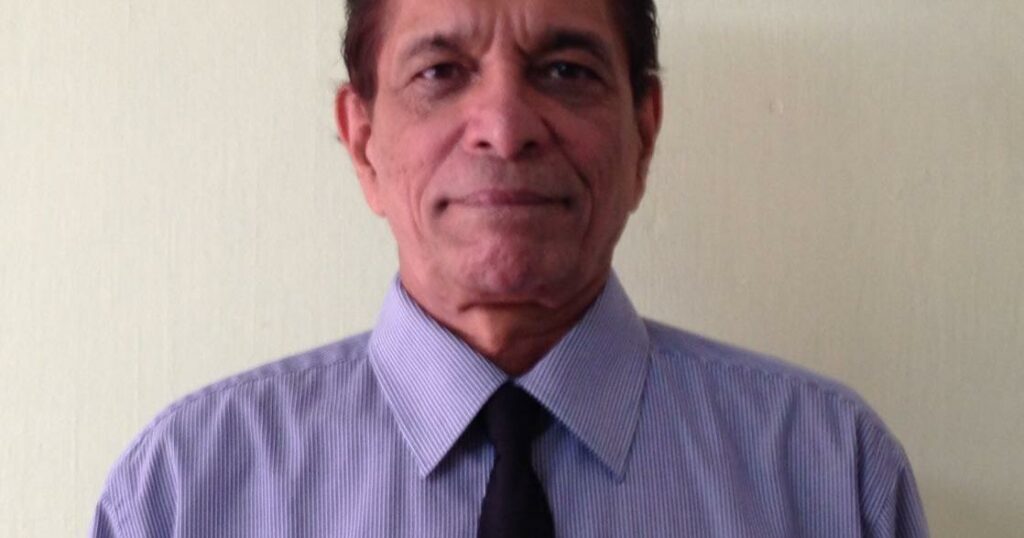In 2015, amidst the swearing-in of the Dr Keith Rowley administration, I wrote: “Guns blazed, bodies fell, and blood flowed in Icacos, San Fernando, Chaguanas, Laventille, Arima and Tobago. Thirty people killed in 21 days!” As though celebrating the arrival of the new government, I said Rowley was unmoved by the carnage.
Not long after, newspaper headlines reported “Bodies on the Road” and “Merciless”, five persons killed in 24 hours and 14 in seven days. “Week of Death!” declared one Saturday front page, but also deliberately showed Rowley having “great fun” with a DJ at a cricket match, after frolicking for a week at nuptials in Miami. Detached, unconcerned. “Is Rowley serious?” my column asked.
Now, almost ten years later and around $70 billion spent on national security, we are heading for over 5,000 people murdered in this population of 1.4 million, the sixth-highest crime rate in the world, higher than New York City with eight million people.
Joint police/army patrols have surfaced again. Will they suffice? Seven years ago, in a column “Call PM Holness”, I urged Rowley to consult his Jamaican colleague who has been doing much more than patrols in his joint efforts with the army and police against crime. Rowley should have listened. He could have avoided the over 4,500 murders so far under his watch. “Keith Rowley and his Government will not solve our growing crime problem,” says Prof Selwyn Cudjoe. “Rowley is much too arrogant, indecisive, ill-disciplined and un-inspirational to lead such a vital national effort.”
Last November, he was apparently stirred from his detachment when eight more persons were gunned down in a 24-hour period. He declared “the state would redouble its efforts to stop these violent outbursts, hunt down and disarm perpetrators and make operational adjustments so state security services can act with despatch”.
What did the tough talk produce? One hundred army reservists for Christmas and Carnival so people could “shop here and shop there, party here and party there”, declared the National Security minister with trademark triteness. Killers continued murdering people singly, doubly and “en grappe”. I told Rowley again, “Consult, PM Holness.”
The Jamaican prime minister has been methodical and comprehensive. Under his National Security Act, Andrew Holness brought together his defence force and police and created Zones of Special Operations (ZOSOs) under Joint Command to uphold the law in a Zone; rid the area of all illegal weapons, ammunition or other contraband; empower members of the Joint Force to search without a warrant within a Zone; and establish, if necessary, a cordon and declare a curfew in the region.
How do Rowley’s joint-patrols compare? Former acting police commissioner Stephen Williams says, “A police officer and two members of the Defence Force merely walking around is not good enough. They must be searching vehicles suspected of conveying violent criminals, and searching persons on the streets who are suspected of possessing firearms.” Former police commissioner Gary Griffith finds it “totally unacceptable it has taken Rowley nine years to recognise the resource of 5,000 members of the Defence Force, doing nothing really, when they could have been utilised as a very powerful tool to complement the Police Service.”
And never forget, we must also arrest our social decay, manifesting in epidemics of domestic violence, child abuse, teenage pregnancies, absent fathers, school hooliganism and more. This is the incubator for the crime levels convulsing the country to near irretrievability. We need regenerative action through the “whole of government approach” to heal our decaying society.
Jamaica has been doing it and now has the country’s lowest crime rate in 24 years. The “multifaceted approach”, says Holness. His ZOSOs “include social transformational initiatives in communities affected by high crime rates”. The man is arresting social decay! And proudly reported success to his parliament. Indeed, for the past six years, he has been applying “a framework for the whole of government response to citizen security” by “scaling up the Zones of Special Operations to reclaim communities captured by criminals”.
Last March, Holness told his parliament the Zones have yielded success in the seven designated communities: Mount Salem, Denham Town, Greenwich Town, August Town, Norwood, Parade Gardens and Savanna-la-Mar. “These communities collectively recorded a 40% reduction in murders compared with pre-ZOSO figures of 2017,” he said. The number of active gangs in Jamaica decreased by approximately 36% in 2023, to an estimated 176 gangs, down from an estimated 276 known gangs in 2018. “A massive reduction,” Holness told legislators.
See, folks? It can be done. Murders down, gangs reduced, social decay arrested. It takes leadership. From the start, Holness placed himself at the front of the battle, assuring his nation: “I will lead a campaign to make Jamaica safe and secure.” This prime minister didn’t occupy office but duck responsibility like his Trinidad and Tobago counterpart, blaming everyone else under the sun—police, parents, schools, community, even God. No wonder Rowley’s decade-long tenure will be stained with over five thousand murders. No wonder one citizen has said “death is everywhere”, referring to killings every day in Trinidad and Tobago. No wonder Rowley’s legacy will be ten blood-soaked years!
—Ralph Maraj
>>> Read full article>>>
Copyright for syndicated content belongs to the linked Source : Trinidadexpress.com – https://trinidadexpress.com/opinion/columnists/ten-blood-soaked-years/article_8ebcc93e-4c7e-11ef-8f41-437e5084be98.html
